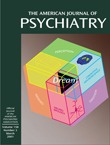Perceived Stigma as a Predictor of Treatment Discontinuation in Young and Older Outpatients With Depression
Abstract
OBJECTIVE: The authors’ goal was to examine the extent to which perceived stigma affected treatment discontinuation in young and older adults with major depression. METHOD: A two-stage sampling design identified 92 new admissions of outpatients with major depression. Perceived stigma was assessed at admission. Discontinuation of treatment was recorded at 3-month follow-up. RESULTS: Although younger patients reported perceiving more stigma than older patients, stigma predicted treatment discontinuation only among the older patients. CONCLUSIONS: Patients’ perceptions of stigma at the start of treatment influence their subsequent treatment behavior. Stigma is an appropriate target for intervention aimed at improving treatment adherence and outcomes.



